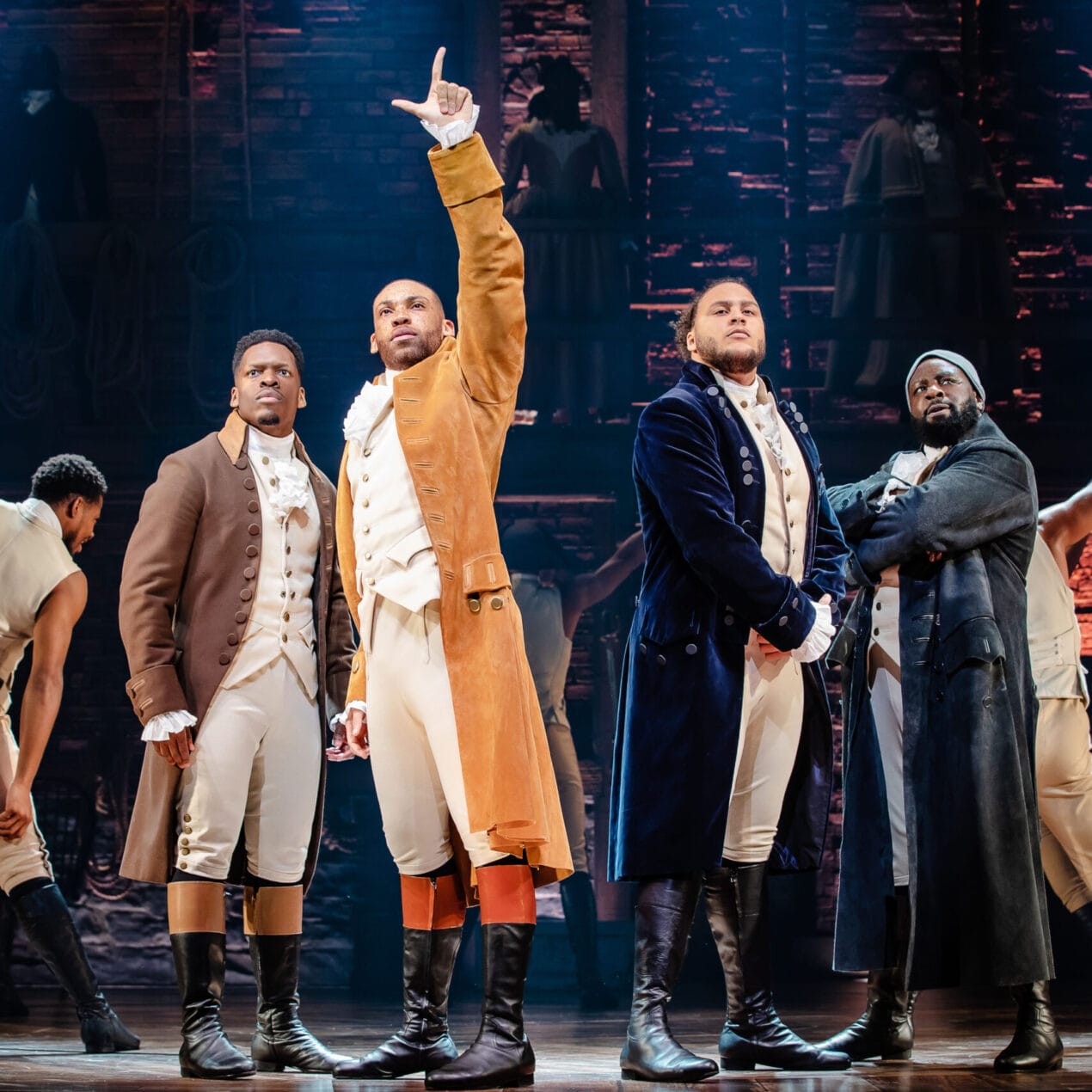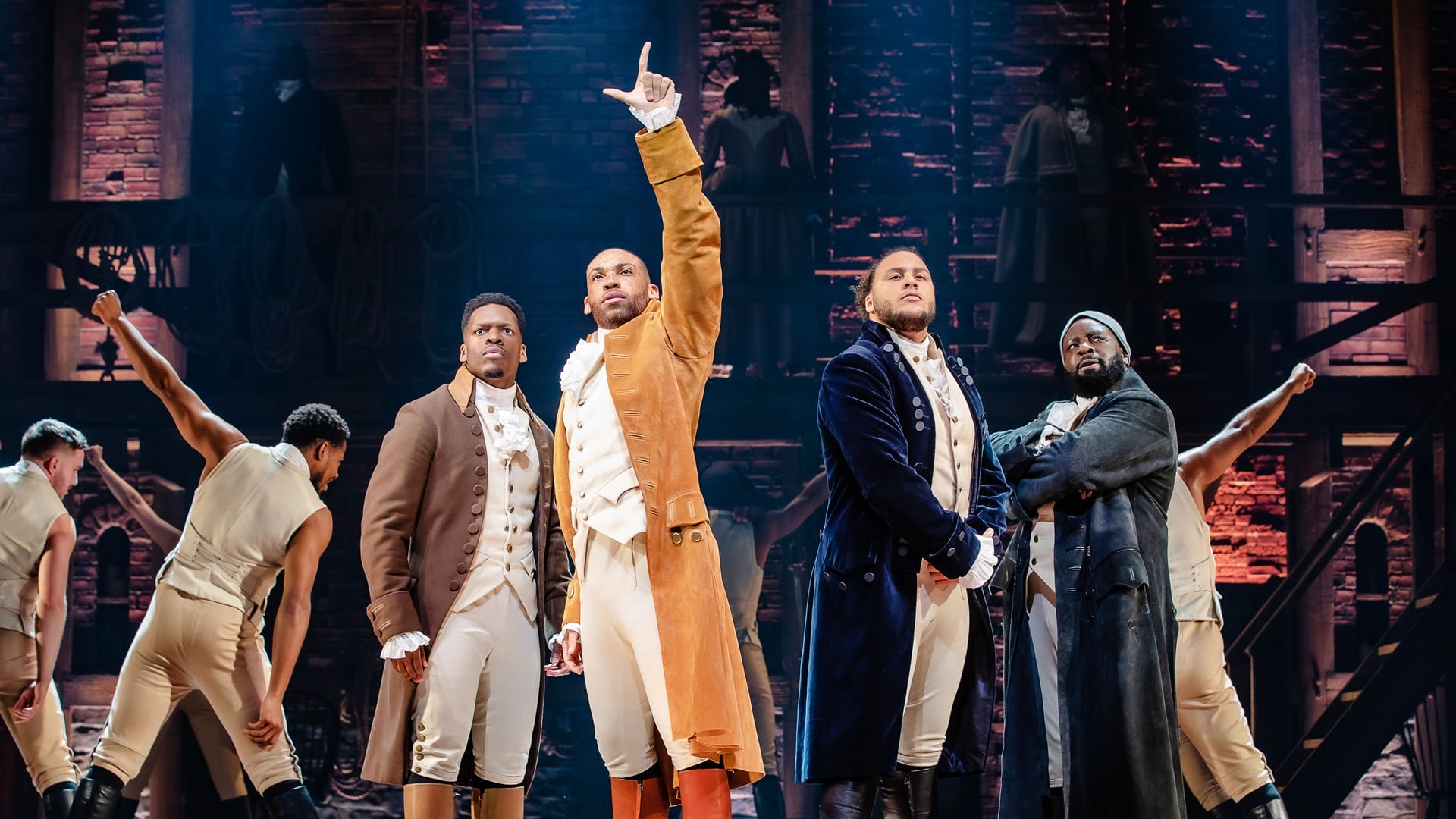As the lyric of the song ‘Alexander Hamilton’ makes clear early in the musical, its title character was a son of a Scotsman whose family background was a spur to his own political success. In a sense, both the American Founding Father and Lin-Manuel Miranda’s fictional version of him are staging a homecoming, now Hamilton the musical is Edinburgh.
Yet Hamilton’s family history isn’t the only link the show has to Scotland.
For the best description of Alexander Hamilton’s early links with Scotland, we turn to Alexander Hamilton by Ron Chernow, the 2004 biography which fired Lin-Manuel Miranda’s imagination when he read it on holiday in Mexico – ironically, while he was meant to be taking a break from the success of his Tony Award-winning debut musical In the Heights after its arrived on Broadway in 2008.
Chernow’s book details how Hamilton was born on the island of Nevis in the Caribbean, most likely in 1755, to Rachel Lavien, a woman of British and French descent who was married but separated when she met his father, James Hamilton. In his late thirties by the time Alexander was born, James was the fourth child of eleven in the distinguished Hamilton family, who spent his childhood in Kerelaw Castle in North Ayrshire, with a view over to the Isle of Arran.
Three walls of the ruined castle still stand in the town of Stevenson, although they’re cordoned off to the public. James was long-gone by the time the Hamiltons moved out in 1787, however. With no chance of inheriting a title, he tried unsuccessfully to make it in the Glasgow linen trade, before lighting out for the West Indian islands and a hoped-for fortune in sugar. Again, it didn’t work out. Soon, Alexander was born.
Chernow describes young Alexander as “distinctly Scottish in appearance, with a florid complexion, reddish-brown hair and sparkling violet-blue eyes… his father’s Scottish ancestry enabled Alexander to daydream that he was not merely a West Indian outcast, consigned forever to a lowly status, but an aristocrat in disguise, waiting to declare his true identity and act his part on a grander stage.”

In it, we see 25-year-old Miranda in his pre-fame days as just another hopeful face in the Edinburgh crowd, performing his act on the street and trying to get punters in the door. With five fellow cast members outside the show’s venue, the Assembly Rooms on George Street, he wears fresh trainers, turned-up denim jeans, a brown tracksuit top tied at the waist and a distinctive red Assembly lanyard dangling from his neck.
Improvised based on audience suggestions, Freestyle Love Supreme arrived in Edinburgh exactly a week after the first try-out performances of In the Heights ended in Connecticut. Featuring singing, rapping, beatboxing and jazz, the musical diversity of both of these shows fed into Hamilton. Reminiscing about his Edinburgh days in 2020, Miranda (known as ‘Lin-Man’ in the show) remembered it was his last summer as a single man before getting engaged to his now-wife Vanessa, with the group living in the same house where “we played NFL Street all day and rapped all night.”
Alongside him in Edinburgh were fellow Freestyle Love Supreme member Christopher Jackson, who played George Washington in the Broadway version of Hamilton, while both FLS and Hamilton were directed by the former show’s co-creator Thomas Kail. Less than four years after playing in Edinburgh, now flushed with In the Heights’ success, Miranda unveiled the first few bars of what was then known as The Hamilton Mixtape at a special 2009 White House performance in front of Barack and Michelle Obama.
The unlikely-sounding project he introduced that night as “a concept album about the life of someone I think embodies hip-hop – Treasury Secretary Alexander Hamilton” has now become, among many other things, an exemplar of theatrical diversity and multiracial casting with black, Latino and Asian actors filming all of the roles. “Our cast looks like America looks now, and that’s certainly intentional,” said Miranda when Hamilton premiered.
Now the show’s performance in Edinburgh is a stepping-stone to take the story international. The fastest-selling show in the thirty-year history of Edinburgh’s Festival Theatre, Hamilton has welcomed bookers from over forty countries to the city, including Australia, Canada, China, Germany, Ireland, the Philippines and the show’s home nation, the USA. By the end of the run, 130,000 people will have seen Hamilton in Edinburgh.

Raised in Cardross, near Helensburgh, trained in Edinburgh and now based and working in London, 24-year-old Honey is the only Scottish actor appearing in this version of the show. Which makes her the most well-placed person in the cast to take on board that Hamilton’s story has its roots in this country, when the song ‘Alexander Hamilton’ dramatically declares this “founding father without a father” was the son of “a whore and a Scotsman / dropped in the middle of a forgotten spot in the Caribbean / by providence impoverished.”
“There is a really strong reaction in the audience when they realise that Hamilton’s family was Scottish, they’re so excited about it,” says Honey. “It’s such a nice, homely feeling for me doing a show about someone who had Scottish and Caribbean heritage, because I’m also Caribbean as well. It’s such a weird, full-circle feeling.”
Words by David Pollock

Join and save
Make great savings on shows and more, enjoy priority booking, and help us to bring the magic of live performance to thousands of people, and communities, every year.
